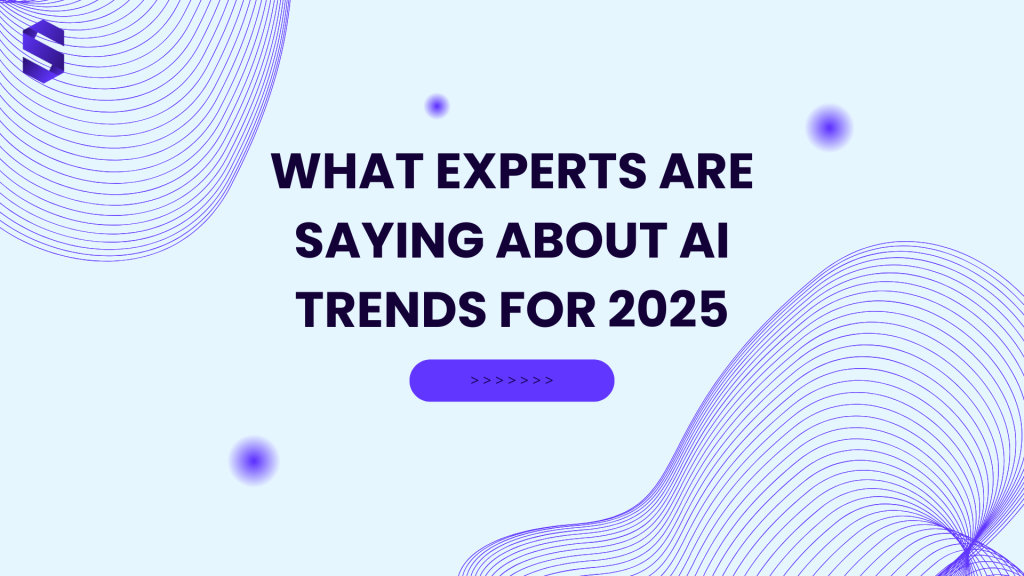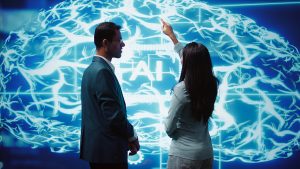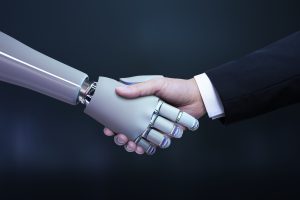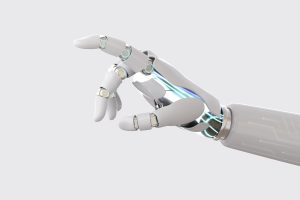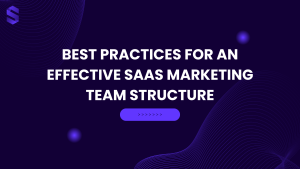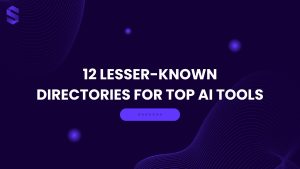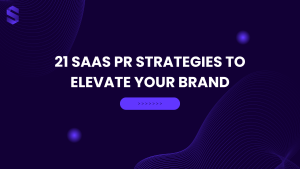As we get closer to 2025, artificial intelligence is changing many industries. Big tech companies think AI will help them grow a lot. They see AI trends for 2025 as a big change for business and society.
Microsoft thinks its AI business will make $10 billion a year. Google’s Cloud unit is growing fast because of AI. Meta says AI helps them target better. The AI world is growing fast, offering new chances to invest.
OpenAI made $3.6 billion last year, and Anthropic might make $1 billion by the end of the year. Experts say AI will be very important in 2025. They think 91% of people will be surprised by AI’s new abilities.
AI will change jobs, make work better, and help new ideas in many areas soon. It’s going to have a big impact.
Key Takeaways
- 57% of employers plan to close AI skills gaps through upskilling
- Most workers expect AI to impact their jobs within 2-3 years
- AI adoption rates are growing, but slower than in 2023
- Millennials see AI as improving decision-making and productivity
- Demand for human skills outpaces AI-related skills globally
- Many employers lack formal AI use policies in the workplace
- Legal risks in AI-driven HR practices are a growing concern
The Rise of Explainable AI
As we get closer to 2025, explainable AI is becoming very important. It changes how we use artificial intelligence. Now, AI is more open and easy to understand.
Importance of Transparency in AI
Being open about AI is key for trust and fair choices. By 2025, companies will put more effort into trusting AI. This move helps avoid legal problems and shows AI’s fairness.
How Explainable AI is Transforming Industries
Explainable AI is changing many fields:
- Healthcare: AI gives clear insights, helping doctors make better choices and help patients.
- Retail: Shops use AI to make shopping better and manage stock better.
- Finance: Clear AI helps explain decisions, which is very important in finance.
By 2025, AI will be a big part of making things and moving things around. This big use of explainable AI will help companies stay strong and ahead.
As we look to the future with AI, explainable AI and change will keep growing. It’s clear that being open and fair with AI will shape our tech world for a long time.
Advancements in Natural Language Processing
Natural language processing is changing how we talk to machines. By 2025, AI will understand and make human language with great skill. This change will make many industries, like customer service and content making, better.
Enhanced Customer Interactions
AI chatbots and virtual assistants are changing how we talk to companies. They will give us answers that feel like they were made just for us. They can handle tough questions and help us anytime.
Companies like OpenAI are leading the way. They make systems that can understand both words and pictures. This makes talking to companies more fun and easy.
The effect of AI on talking to companies is big. AI marketing tools are changing how brands talk to us. They help make messages more personal and work better in online marketing.
New Applications in Content Creation
AI tools for making content are getting smarter. They can write articles, make social media posts, and even create art and music. These tools help us do more creative things, so we can focus on the fun stuff.
Here’s how AI is changing making content:
| Content Type | AI Contribution | Human Role |
|---|---|---|
| Written Content | Draft generation, SEO optimization | Editing, creative direction |
| Visual Art | Image generation, style transfer | Concept development, final touches |
| Music | Melody creation, arrangement | Lyric writing, emotional input |
As we get closer to 2025, AI and human creativity will work together in new ways. By 2025, Natural Language Processing and Generative AI will change how we make art and content.
AI is Transforming How We Communicate—Are You Ready?
From AI chatbots to content creation, Natural Language Processing is revolutionizing industries. Make sure your business is leveraging AI-driven communication tools to stay ahead. Let’s explore how AI can enhance your brand’s engagement. Talk to us today!
AI in Healthcare: A Game Changer
AI is changing how we care for patients and do medical research. It’s helping solve big problems like a huge shortage of healthcare workers. This tech makes care better and helps with paperwork too.
Predictive Analytics in Patient Care
Predictive analytics is changing patient care. A special algorithm by the Permanente Medical Group saves about 500 lives each year. It finds patients who might get sick soon. This AI way of helping patients is truly saving lives.
AI-Driven Drug Discovery
In finding new medicines, AI is making things faster and cheaper. It looks through lots of data to find new drugs and see if they work. This could mean we get new treatments sooner.
| AI Application | Impact | Potential Benefit |
|---|---|---|
| Predictive Analytics | 500 lives saved annually | Early risk identification |
| Administrative AI | $2.4 billion raised in 2024 | Reduced clinician workload |
| Drug Discovery | Faster research timelines | Quicker treatment development |
AI in healthcare is very promising, but there are still challenges. Keeping health data safe is very important. Health systems need to get everyone on board and figure out how to use AI right. Despite these challenges, AI is going to make healthcare better, faster, and more personal.
Ethical AI: Balancing Innovation and Morality
AI is getting more common, and we need to focus on being ethical. It’s hard to be creative and still be right. A 2022 McKinsey report said only 17% of companies were trying to fix AI’s bias problems.
Addressing Bias in Algorithms
AI can be unfair, and this is a big problem. A documentary called “The Coded Bias” showed how bad it can be. Now, companies are checking for bias and working with different people to make AI better.
Being open is important for trust. The finance world is using AI to help with money decisions. They want to explain how these decisions are made, so people can trust them. Getting users involved helps make AI fairer.
Regulations and Best Practices
In 2023, 127 countries had rules for AI. Good practices include:
- Creating strong ethical AI rules
- Teaching people about ethics in AI
- Checking AI systems often
- Keeping data safe and following GDPR
- Letting users control their data
But, there are still problems. Companies find it hard to make money and be ethical at the same time. Big AI systems also hurt the environment. Keeping up with ethics and rules is key for AI’s future.
AI for Sustainability: A Greener Future
As we get closer to 2025, AI for sustainability is changing the game against climate change. This new tech is making a big difference in how we tackle environmental problems. It’s helping us find new ways to make our future greener.
AI Solutions in Climate Change Mitigation
AI is a big help in fighting climate change. It looks at lots of environmental data to predict weather, track deforestation, and model climate scenarios. This expanding impact of AI technology lets us make conservation efforts more focused and effective.
Optimizing Energy Consumption with AI
AI is also great at saving energy. Smart grids powered by AI help balance energy supply and demand. This cuts down on waste and makes things more efficient.
In buildings, AI systems adjust things like heating and cooling based on who’s there and the weather. This big cut in energy use is thanks to AI.
But, we need to think about AI’s own environmental impact. AI data centers use a lot of energy, which needs new cooling solutions and green energy. As we use AI to make our future greener, we must balance its benefits with its environmental cost.
- AI-powered climate models improve prediction accuracy by 30%
- Smart grids with AI reduce energy waste by up to 15%
- AI-optimized buildings can cut energy use by 20-30%
Looking ahead, AI’s role in sustainability will keep growing. It will help us make more renewable energy and design products that are better for the planet. AI is set to be a key player in creating a more sustainable world.
AI-Powered Automation in the Workplace
The workplace is changing fast with ai automation. It’s not just about replacing jobs. It’s about making our work better and opening up new chances.
Impact on Job Markets and Employment
AI automation is changing jobs in many fields. Some worry about losing jobs, but the World Economic Forum says AI will create 97 million new jobs by 2025. These jobs will need new skills.
In manufacturing, AI makes things run smoother and saves money. Plants can lose $50,000 an hour if they stop unexpectedly. AI helps avoid these losses, keeping jobs safe by helping businesses stay ahead.
Benefits of Collaborative AI Systems
Collaborative ai works with humans to make things better. In healthcare, AI does boring tasks so doctors can care for patients. In sales, AI finds good leads, helping teams work better.
| Industry | AI Application | Benefit |
|---|---|---|
| Logistics | Hyper-automation in order processing | Reduction from 30 minutes to 2 minutes per order |
| Construction | AI-powered risk assessment | Significant reduction in project delays |
| Retail | Supply chain optimization | 65% of Walmart stores to be serviced by automation by 2026 |
As we get closer to 2025, businesses need to get ready for AI. Training workers and using collaborative AI will help them succeed in this new world.
Edge AI: Processing Data Where It’s Generated
Edge AI is changing how we deal with data. It lets us process information right where it’s made. This is making big changes in many areas and making our lives better.
In 2025, Edge AI will help us make decisions faster. It will also keep our data safer and work better without needing the internet all the time.
Benefits of Real-Time Data Processing
Real-time processing is a big deal for businesses and people. Edge AI means we can react quicker and work more smoothly. It lets us analyze data right away, cutting down on delays.
For example, in factories, Edge AI can spot problems with machines fast. This stops big losses from not working.
Use Cases in Smart Devices
Thanks to Edge AI, smart devices are getting smarter. Your home gadgets, cars, and wearables can now work better on their own. They can learn about you without sharing your info online.
Imagine a smart thermostat that knows your likes without going to the cloud. Or a fitness tracker that tells you about your health right away, without needing the internet.
In 2024, about 35% of companies used AI, and 42% were looking into it. By 2025, Edge AI in smart devices will be key. It will make our lives simpler and safer.
| Year | Industrial Robot Cost |
|---|---|
| 2010 | $46,000 |
| 2017 | $27,000 |
| 2025 (Expected) | $10,800 |
As robots get cheaper, Edge AI will be easier to use. This will lead to smarter, more efficient devices. They will be able to handle data on their own, changing how we use technology every day.
The Growth of AI in Cybersecurity
AI is changing how we protect our digital world. Old security methods can’t keep up with new threats. By 2025, AI will be key in keeping our connected world safe.
Detecting Threats with Machine Learning
Machine learning finds threats by looking at lots of data. It spots patterns and oddities that humans might miss. In 2023, hackers found weaknesses in just 22 minutes, showing we need quick action.
Automated Response Systems
AI is also making quick responses to threats possible. These systems act fast to lessen harm and downtime. With cybercrime making over $8 trillion a year, we need to act fast.
AI in cybersecurity has big benefits:
- It watches for threats all the time and finds them fast.
- It cuts down on false alarms, so teams can focus on real dangers.
- It adapts to new attack methods.
By 2025, AI in cybersecurity will get even better. It will help protect the 18.8 billion connected devices online by then. Using AI in your security plan is now a must to stay safe from cyber threats.
AI and Human Collaboration: The Future of Work
The workplace is changing fast. By 2025, AI and humans will work side by side. This shift brings new ways to boost workplace creativity and get more done. Let’s explore how AI is shaping our work lives and what it means for you.
How AI Enhances Creativity and Productivity
AI tools are becoming key partners in the workplace. They help us think outside the box and work smarter. For example, AI can handle routine tasks, freeing up time for creative thinking.
It can also suggest new ideas, sparking innovation in ways we never thought possible. Companies that use AI well are seeing big gains. They’re getting more work done and coming up with fresh ideas faster. This ai human collaboration is changing how we approach problems and find solutions.
Training Workers for an AI-Driven Economy
As AI grows, workers need new skills. AI economy training is becoming crucial. It’s not just about learning to use AI tools. It’s about working alongside AI in new ways.
- Understanding AI capabilities and limits
- Learning to interpret AI-generated data
- Developing skills that complement AI
Companies are changing how they hire and train. They’re looking for people who can adapt and learn quickly. The goal is to build teams where humans and AI bring out the best in each other.
“The future belongs to those who can work with AI, not compete against it.”
As we move towards 2025, the blend of human skills and AI capabilities will define success. It’s an exciting time full of opportunities for those ready to embrace this new era of work.
Looking Ahead: AI Trends to Watch Beyond 2025
Looking into the future of artificial intelligence, we see ai innovations coming. Technology is changing fast, and AI is leading this change. Let’s look at some trends that will change our world.
Anticipating Future Innovations
Generative AI is making a big splash in many fields, like healthcare and finance. By 2025, AI agents will make decisions and do tasks on their own. This will make AI a bigger part of our lives.
Mobile devices are getting smarter, thanks to AI. Small language models are also becoming popular. They work fast and keep data close to us, improving privacy and reducing cloud use.
Preparing for an AI-Integrated World
By 2025, hyperautomation will be key in business. AI will automate tasks with great accuracy, helping companies win. Real-time insights and predictions will be vital for making smart choices.
Security is also changing, with zero-trust models leading the way. In this AI world, we must learn new ways to work and think. Staying up-to-date with AI trends will help us succeed beyond 2025.
The Future of AI is Here—Don’t Get Left Behind!
With AI reshaping every industry, now is the time to adopt cutting-edge strategies. Whether it’s automation, cybersecurity, or AI-driven content, we can help you integrate AI for maximum impact. Ready to future-proof your business? Let’s chat!
FAQ
What are the key AI trends expected for 2025?
In 2025, AI will see big changes. We’ll see more explainable AI and better natural language processing. AI will also help in healthcare and be more ethical.
It will help with sustainability and make workplaces more efficient. Edge AI and better cybersecurity are also on the horizon. Plus, AI will work better with humans.
How is explainable AI transforming industries?
Explainable AI is changing how we work. It’s making virtual teams that help us do our jobs better. For example, Auto-GPT can do web tasks and code on its own.
This is especially important in places where we need to know how AI makes decisions.
What advancements are happening in Natural Language Processing (NLP)?
NLP is getting better fast. It’s making customer service better and helping with content creation. OpenAI’s GPT-4 can now understand text and images.
Tools like DALL-E are helping in creative fields. They help with writing, art, and music. This makes chatbots and virtual assistants smarter.
How is AI impacting healthcare?
AI is changing healthcare a lot. It helps find diseases, discover new drugs, and tailor treatments. For example, IBM Watson Health analyzes medical data to help doctors.
AI is making patient care better and more efficient. It’s also speeding up finding new treatments.
What steps are being taken to ensure ethical AI development?
Making AI fair and right is a big focus. Companies are using AI governance to follow rules and be ethical. IBM’s AI Fairness 360 helps find and fix AI bias.
As AI grows, we need to keep it fair and make sure it’s good for everyone. This means teaching AI and following rules.
How is AI being used for sustainability efforts?
AI is helping with the environment, like fighting climate change. But, AI itself uses a lot of energy and water. Companies are talking about how AI helps the planet, but we need to think about its own impact.
What impact will AI-powered automation have on the job market?
AI is changing jobs a lot. Some jobs might disappear, but AI will also create new ones. For example, Tesla’s Optimus robot can do human tasks, making work more efficient.
AI will help us work better together, making jobs more productive.
What is Edge AI and why is it gaining traction?
Edge AI works on devices, making data processing fast and private. It’s great for smart devices and IoT. Edge AI helps with quick decisions and keeps data safe.
It’s used in cars, homes, and factories. It makes things work better and faster.
How is AI enhancing cybersecurity measures?
AI is making cybersecurity stronger. It helps fight new threats and keeps data safe. Darktrace uses AI to catch cyber attacks fast.
But, AI can also be used by bad guys. By 2025, AI attacks will get bigger and more complex.
How will AI and human collaboration shape the future of work?
AI and humans working together will change work a lot. AI is making us more creative and productive. For example, Khan Academy’s Khanmigo offers personalized tutoring with GPT-4.
We need to learn how to work with AI. This means learning about AI management and ethics.
What AI trends are emerging beyond 2025?
Beyond 2025, AI will get even more advanced. We’ll see AI agents that can do complex tasks and AI that can handle different types of data. There will also be more energy-efficient AI.
We need to keep learning and adapting to use AI well. This will help us use AI’s benefits while avoiding its risks.

